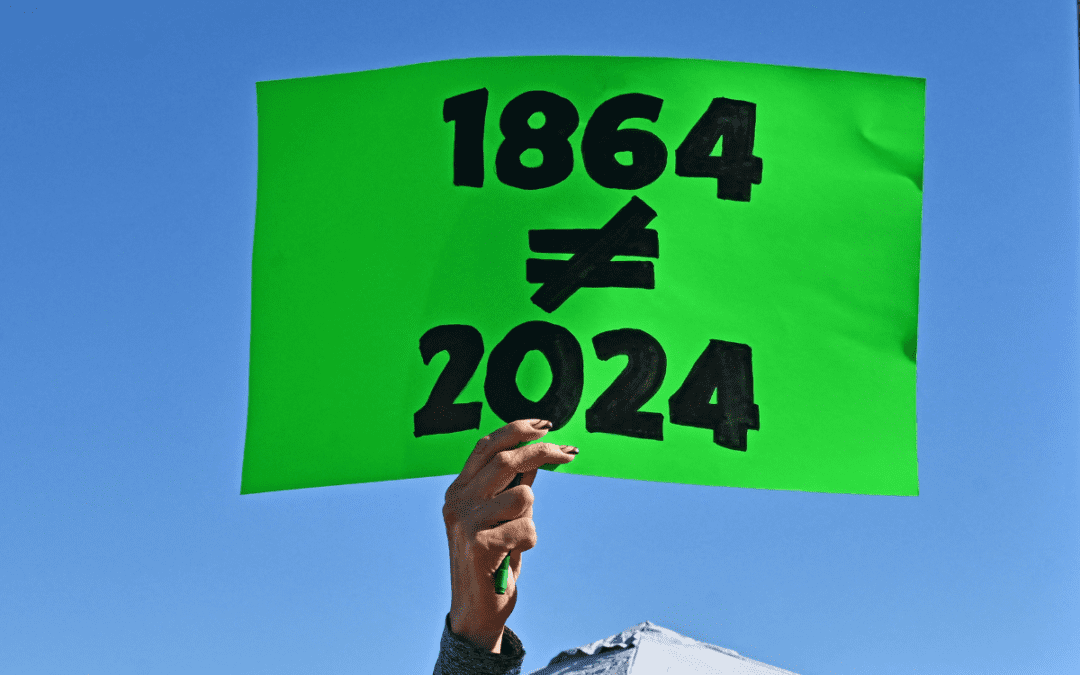
Arizona has made severe cuts to its education system since the Great Recession.
Education is largely on voters’ minds this year, especially in Arizona where schools are chronically underfunded.
After being consistently ranked one of the worst states for teacher pay, school staffing, spending on students, and more, teachers led six days of walkouts in 2018 through the Red for Ed movement.
While they were able to convince Gov. Doug Ducey to raise teacher salaries, other demands were not met.
A number of proposals up for a vote this year would help fill in some of those educational gaps.
Proposition 207
Prop 207, or the Smart and Safe Act, would legalize recreational marijuana in Arizona.
But it does more than just reduce penalties for possessing the drug—it also calls for a 16% excise tax on marijuana sales that would help fund community colleges as well as public safety and infrastructure.
According to the Center on Budget and Policy Priorities, Arizona cut community college spending per student by 47% from 2008 to 2015, the highest budget slash in the country.
Stacy Pearson, a spokesperson for the Prop 207 campaign, told The Copper Courier that organizers felt they could make a real difference with community colleges.
“There will never be enough marijuana excise tax revenue to solve the K-12 funding crisis,” she said. “[Community college funding] is a problem that could be solved with the marijuana excise tax, and it makes sense for the betterment of Arizona. Lowering tuition is critical.”
RELATED: Legal Weed — and More Money for Public Safety — Could Soon Be Coming to Arizona
Rounds Consulting Group estimates Arizona would see $900 million to $1 billion in marijuana sales in 2021 if Prop 207 passes, meaning between $136 million and $256 million would be collected in excise taxes.
By 2024, sales could be as high as $2 billion with up to $312 million generated in taxes.
Community college districts would receive 33% of these funds, so that year they could see nearly $103 million in extra cash.
Proposition 208
Prop 208, or Invest in Ed, is 100% focused on increasing school funding.
The measure would add a 3.5% surcharge on income over $250,000 for individuals and $500.000 for couples.
Organizers expect the initiative would being in “hundreds of millions of dollars” for K-12 education, with the funding being distributed like this:
- 50% to hiring and raising pay for teachers and classroom support staff (ex. Counselors, nurses)
- 25% to hiring raising pay for student services support staff (ex. Classroom aides, bus drivers)
- 12% to supporting vocational education programs
- 10% to teacher mentoring and retention programs
- 3% to the Arizona Teachers Academy, which provides college students pursuing education degrees with scholarships
Increasing education funding in Arizona could have huge ramifications for the state’s students.
RELATED: As Arizona Schools Reopen, Public Will Vote on Education Funding Initiative This Fall
According to a 2016 study, a 10% annual spending increase over 12 years of public schooling led to an increase in high-school graduation rates by seven percentage points.
Students who saw these school funding increases earned 7% higher wages as adults and decreased their rate of falling into poverty by three percentage points.
Invest in Ed supporters say based on this study, a full restoration of Arizona’s school funding could boost the state’s economy by $3.8 billion.
Biden’s College Plan
Democratic presidential candidate Joe Biden has bold plans when it comes to higher education.
Biden would provide two years of community college or vocational training for all Americans, while four years of public college would be free for families making under $125,000 per year.
He also wants to forgive tuition-related student loan debt from public colleges for people making under $125,000 per year, and for other borrowers, wipe out $10,000.
Sixty percent of 2018 graduates in Arizona left school with student loan debt. On average, Arizona graduates left school owing an of nearly $24,000.
The state decreased higher education funding by nearly 55% from 2008 to 2018—again the highest cut in the country. This pushed Arizona’s public colleges’ tuition up by more than 92% over those 10 years, the second-largest jump in the US.
Andy Sugrue, an economic policy analyst with the Arizona Center for Economic Progress, told The Copper Courier that access to higher education varies widely across different demographics.
RELATED: Arizona Teacher Union VP Says Biden Will Fix DeVos’ Education Mess
For example, 35% of white Arizonans have Bachelor’s degrees or higher while 24% of Black Arizonans and 11% of Latino Arizonans do.
“We think that expanding access to even those groups is really important,” Sugrue said.
“What the Biden plan could do is it could really help out those Arizonans that might have suffered at the hands of multiple years of state disinvestment in higher education,” he added, “and it could give them access.”
President Donald Trump, a Republican, has not announced any plans for student loan forgiveness or free college.
The only two education positions on his second-term agenda are to provide school choice for every child and teach “American exceptionalism.”
Continue Reading: No, Prop 208 Will Not Destroy Arizona’s Economy
Politics

State Official: 1864 abortion ban gives Arizona ‘black eye’
Arizona’s role at the forefront of the climate crisis, defending democratic elections, and protecting reproductive rights has caught the attention...

Biden makes 4 million more workers eligible for overtime pay
The Biden administration announced a new rule Tuesday to expand overtime pay for around 4 million lower-paid salaried employees nationwide. The...
Local News

Arizona’s reality TV stars: Where are they now?
From A-list actresses to a controversial bachelor, here's a roundup of reality TV stars from Arizona. Whether you love it or hate it, reality TV is...

New funding keeps the homeownership dream alive for Avondale families
In a unanimous decision, the Maricopa County Board of Supervisors approved an additional $796,326 on March 27 to boost homeownership opportunities...





